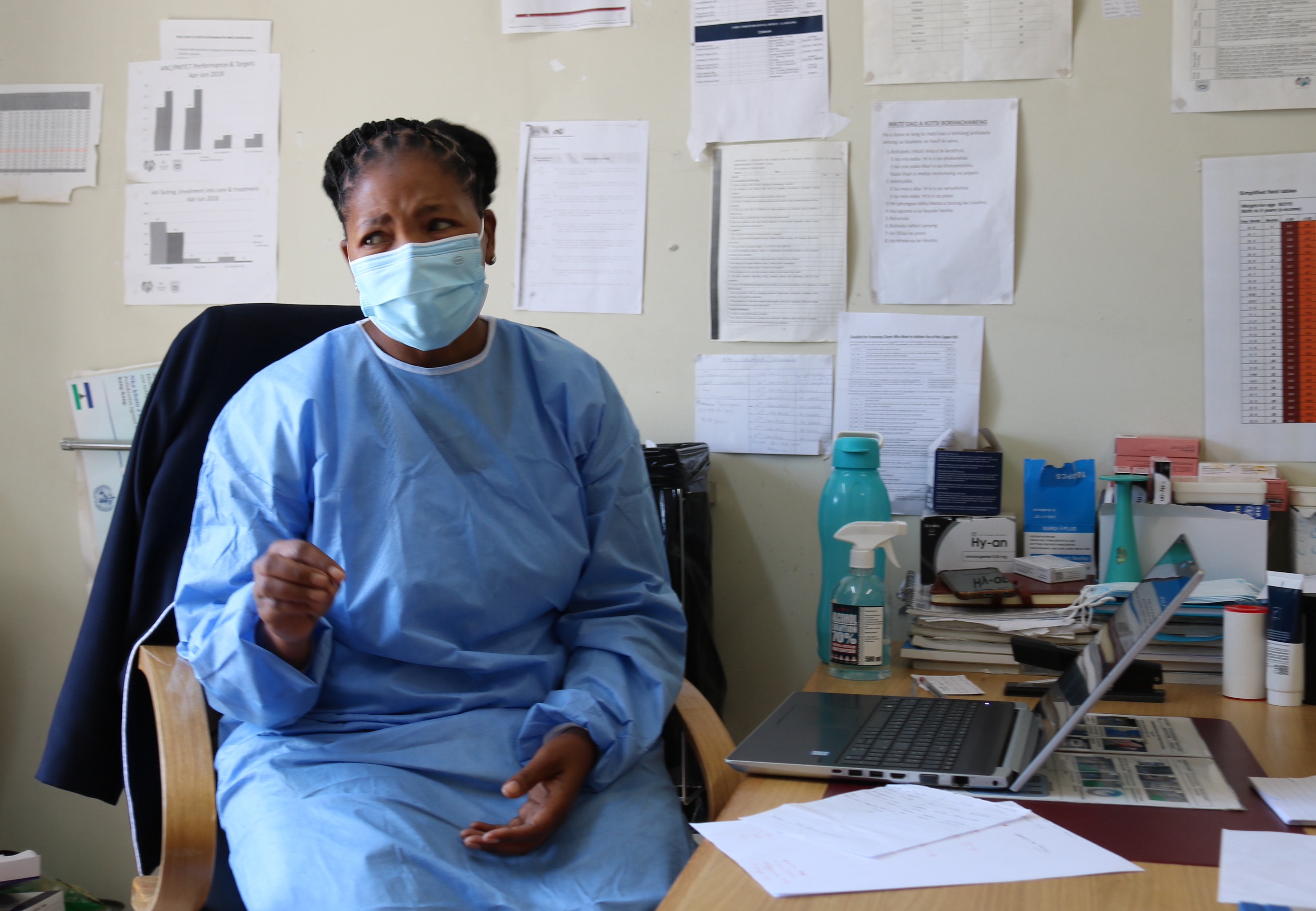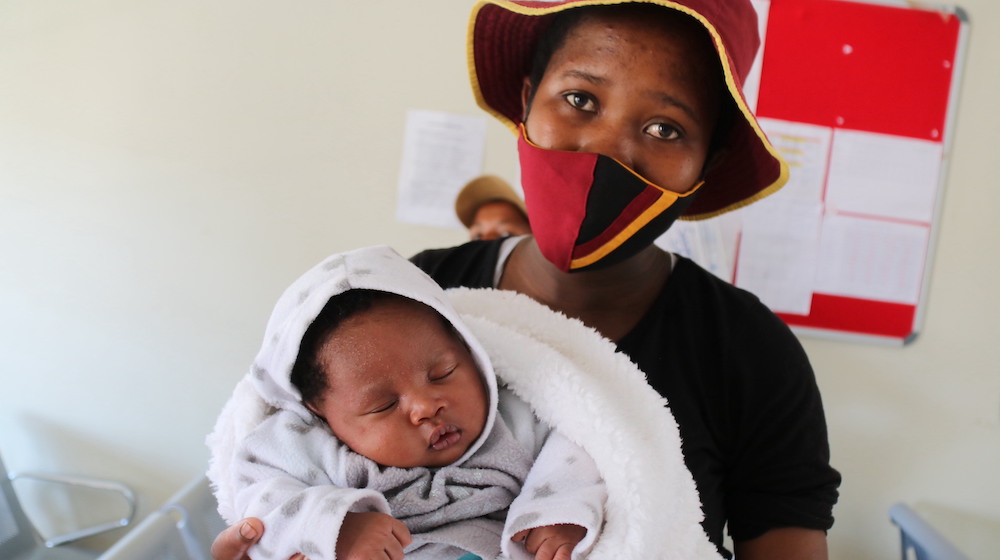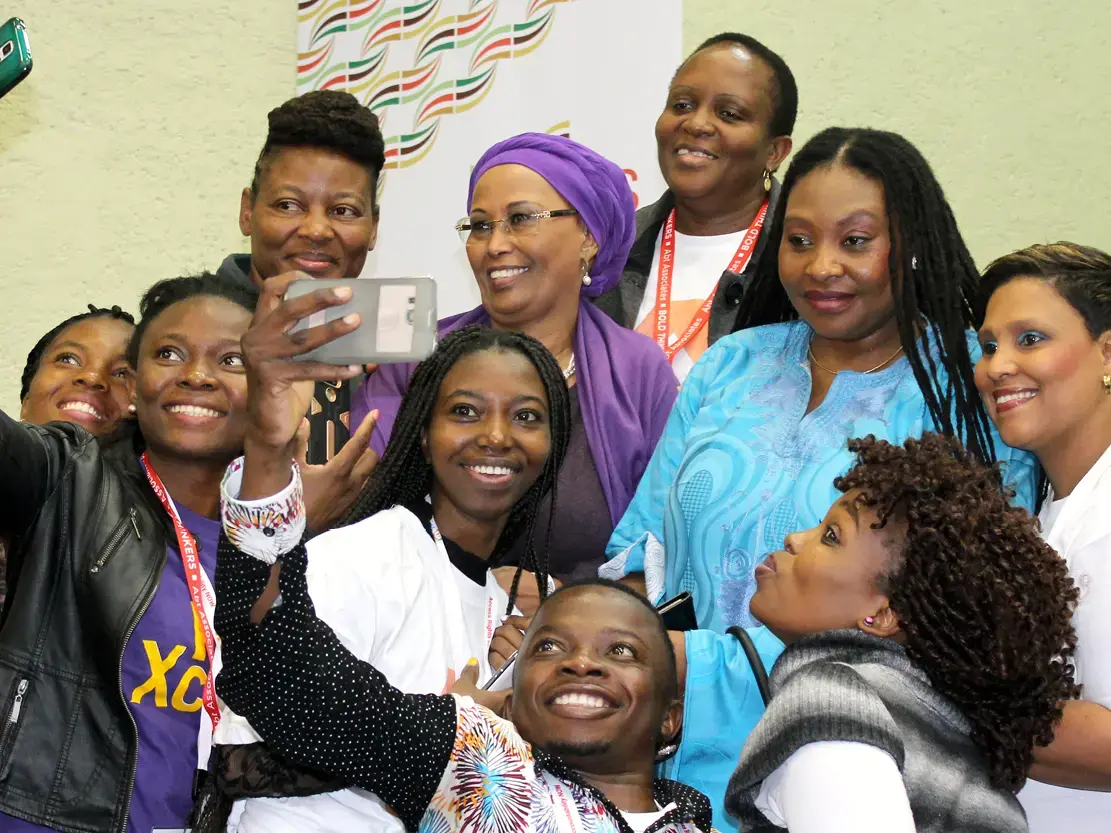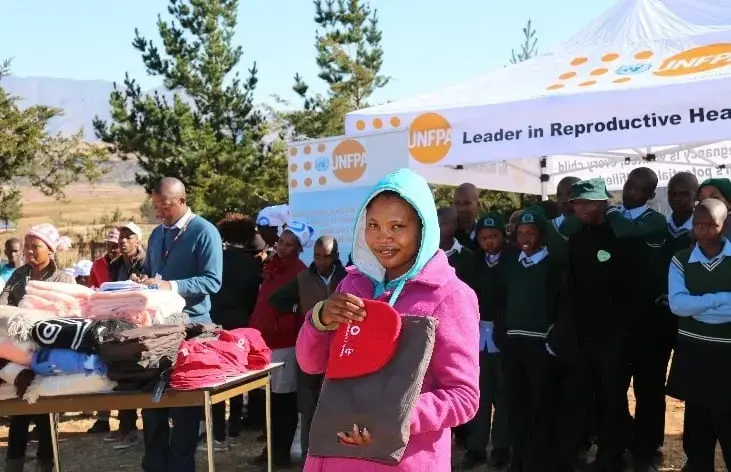HA KOALI, Berea district, Lesotho—When a high school teenager with a sexually transmitted infection (STI) visited a clinic at Ha Koali for treatment, she got more than she expected. Nursing Officer ‘Makatleho Rapapa counselled and treated her, then provided information on family planning, including the newly introduced self-injection depo, Sayanna Press.
She preferred [the three-month injectable contraceptive] as she would not have to miss school or ask her parents to allow her to visit the health facility regularly.
“The fact that she had an STI showed that she was already [having] sex,” Ms Rapapa said. “During counselling, I showed her different types of contraceptives and she opted for Sayanna Press. She preferred it as she would not have to miss school or ask her parents to [allow her to] visit the health facility regularly.”
By providing the girl with counselling and information services, contraceptives, and treating her STI, the clinic provided integrated sexual and reproductive health-care services, as recommended under the 2gether 4 SRHR programme. This is a regional intervention with the goal of improving the sexual and reproductive health and rights of all people, with a particular focus on adolescent girls, young people and key populations in East and Southern Africa.
Integrating services for greater efficiency
To ensure integrated services, healthcare providers must have the knowledge and skills needed to provide an appropriate basic package of services and to refer patients for other necessary services not provided at that site, as the Nursing Officer did in the case of the teenager.

In Quthing district, integrated services are offered during community outreach initiatives. As 80 per cent of the population in Quthing works in South Africa, they are given a full package of services during a community outreach programme, as they visit Lesotho on a seasonal basis, according to the District’s Public Health Nurse, ‘Mateboho Mothupi.
“We provide the full package, including cervical cancer screening and HIV testing and counselling, besides the provision of different types of contraceptives, and refer cases of sexual and gender-based violence (SGBV). Just recently, we referred a 12-year-old HIV-positive girl who had a mental illness, whose father was aware of a [case of] SGBV [perpetrated] on her by a friend,” she said.
In Quthing, most people walk long distances to reach a health facility, hence the need for the community outreach initiative. In Butha-Buthe district, Lesotho Planned Parenthood Association (LPPA) launched and runs the outreach programme once a month at ‘Moteng, and includes a health talk. It also offers HIV testing and counselling, cancer screening, COVID-19 vaccination and family planning services.

Self-injecting contraceptive method gaining ground
Rethabile* heard about the self-injection depo (Sayana Press) during one of the health talks and made a decision to use it, with the assistance of the health-care providers. “I will come for the next dose after three months. If by then, they realise that I can inject myself, then they will give me the next doses to do it myself,” she said. “It is not painful. I am going to encourage others to use it.”
The self-injection depo (Sayana Press) is not painful. I am going to encourage others to use it.
The rationale for the integration of services is to increase the effectiveness and efficiency of the health system and to meet people’s needs for accessible, acceptable, convenient, client-centred and comprehensive care.
In Lesotho, UNFPA, the United Nations sexual and reproductive health agency, leads the implementation of the 2gether 4 SRHR programme in collaboration with UNAIDS, UNICEF and WHO. The programme combines strategies and activities according to the strengths and advantages of the four participating UN agencies. It provides support to governments, civil society and communities to scale up quality services on integrated sexual reproductive health and rights, HIV, and sexual and gender-based violence for all, especially adolescent girls, young people and key populations.
UNFPA has developed the capacity of journalists in Lesotho to report on sexual and reproductive health and rights, with focus on the 2gether 4 SRHR programme and integration of SRHR, HIV and SGBV services, so that they can raise awareness about the programme and related issues. The journalists toured health facilities to observe at first hand the provision of integrated services.
Lesotho is one of five countries implementing the 2gether 4 SRHR programme, which is funded by the Swedish International Development Cooperation Agency (SIDA).
* Name changed to protect privacy




